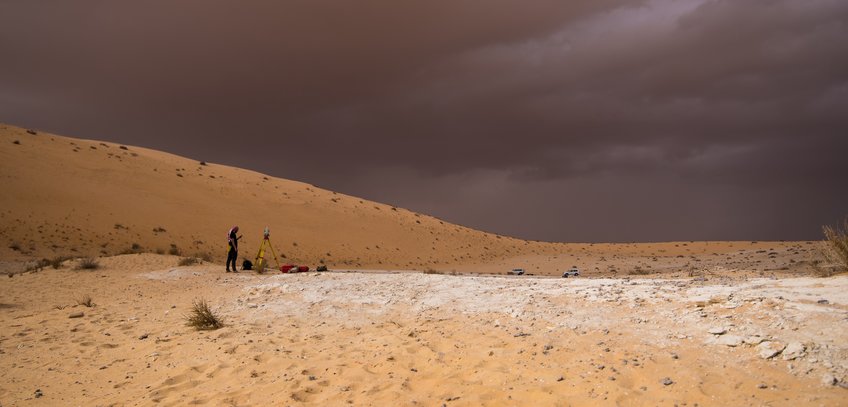
Climate Change, Human Migrations and Societal Change in Arabia
KAUST Cultural Heritage Event Series * Webinar by Prof. Michael Petraglia
- Date: Wednesday, May 20, 2020
- Time: 12:00 - 01:00 pm (Riyadh, London Time +2) Mind the time zone!
- Location: Webinar - https://kaust.zoom.us/i/96427815930
ABSTRACT
The evolution and history of humans is a topic that fascinates scholars and the public alike. Over the last decade, an international and interdisciplinary community of scientists has conducted surveys and excavations centred on humans and human societies of Saudi Arabia, making new fossil and archaeological discoveries. Our origins lay in Africa, but early humans have been moving across Arabia for at least 500,000 years or more. Hunter-gatherers, including members of our species, Homo sapiens, travelled across Arabia multiple times in the past, coping with significant climatic fluctuations and ecosystem changes. During the last 10,000 years, people have faced a variety of challenges from climatic change and droughts, leading to a wide range of technological, economic and cultural responses. Archaeological examples illustrate diverse strategies to societal resilience and provide important lessons for a world in which climate predictions forecast dramatic changes to terrestrial environments.
THE SPEAKER
Michael Petraglia was born in the USA, received his degrees from New York University and the University of New Mexico. From 2001 to 2009 he was a lecturer at the University of Cambridge and from 2009 to 2016, Professor of Human Evolution and Prehistory at the University of Oxford. in 2016, he moved to Jena, Germany, joining the Max Planck Institute for the Science of Human History. He currently leads large-scale, interdisciplinary archaeologigical projects internationally, including in Sudi Arabia.
Petraglia is a Research Associate at the Smithsonian Institution (USA) and an Honorary Porfessor at the University of Queensland (Australia). He has authored and co-edited then books, including Human Dispersal and Species Movement: From Prehistory to the Present (2017, Cambridge University Press). He has authored over 200 journal articles and book chapters, centerin on a wide range of subjects in human evolution and history.